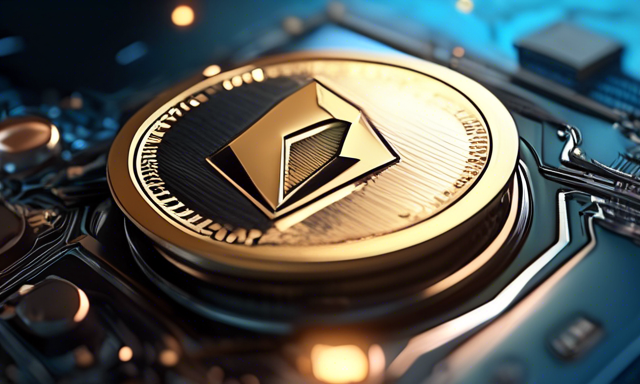Understanding Ethereum’s Record Low Gas Fees 📉
Recently, Ethereum has experienced a significant drop in its transaction fees, also known as gas fees. This decline has led to the median gas price hitting a 5-year low, reaching just 1.9 gwei on August 10. While this may be beneficial for users in the short term, it has raised concerns about the network’s long-term sustainability and economic implications. Let’s delve into the factors contributing to this trend and its potential impact on Ethereum’s tokenomics.
Factors Driving the Decrease in Gas Fees 📉
Several key factors have contributed to the notable reduction in gas fees on Ethereum:
- Implementation of the Dencun upgrade in March
- Introduction of data blobs to decrease transaction costs for layer-2 blockchains
- Shift in activity to layer-2 networks like Base, Arbitrum, and Optimism
- Increased transaction throughput on layer-2 solutions, reducing congestion on the main Ethereum network
- Impact on Ethereum’s deflationary mechanism that burns transaction fees
- Increase in Ethereum’s supply due to fewer ETH being burned
- Contrast to the previously championed deflationary narrative
- Concerns raised by Martin Köppelmann, co-founder of Gnosis, regarding funding staking rewards adequately
- Suggestions to increase L1 activity and potentially raise the gas limit
- Affect on the network’s security model and incentivization of validators through staking rewards
- Demonstration of the success of Ethereum’s scaling strategy and emphasis on layer-2 solutions
Implications of Low Gas Fees on Ethereum’s Tokenomics 📉
The decrease in gas fees has generated discussions around Ethereum’s deflationary narrative and overall tokenomics:
Community Response and Proposed Solutions 📉
The Ethereum community is actively discussing potential strategies to address the implications of low gas fees:
Impact on Network Security and Scaling Strategy 📉
The persistently low gas fees on Ethereum have implications beyond tokenomics:
Enjoying the Benefits of Low Gas Fees 📉
Despite the concerns raised, users can currently take advantage of the extremely low gas fees on Ethereum, making the network more accessible than ever before.
Hot Take: Navigating Ethereum’s Gas Fee Landscape 📉
As Ethereum continues to experience record low gas fees, users must stay informed about the evolving economic dynamics and potential solutions proposed within the community. Understanding the implications of reduced transaction costs on tokenomics and network security will be crucial for navigating Ethereum’s changing landscape.





 By
By

 By
By

 By
By
 By
By